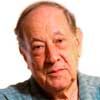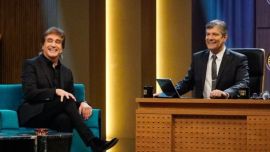“His qualities — or rather his lack of qualities — illustrate our peculiar problems. He is neither good nor bad, great nor petty. He is the human pseudo-event. He has been fabricated on purpose to satisfy our exaggerated expectations of human greatness…. he is made by all of us who willingly read about him, who like to see him on television, who buy recordings of his voice, and talk about him to our friends. His relation to morality and even to reality is highly ambiguous.”
When you read this paragraph describing a US politician, who comes to mind? If you immediately assumed the reference was President Donald J. Trump you are not only wrong but also some 50 years late in getting a jump on what was going to happen the United States and, to a lesser extent, throughout most of the world. Yet the reference to “he” is not to an actual person. The subject is what Daniel J. Boorstin, in The Image: A Guide to Pseudo-Events in America, called “a human pseudo-event.” It was written more than a half-century ago. In the vocabulary of today a “human pseudo-event” is, simply, somebody we call “a celebrity.”
Boorstin, a historian who taught at the University of Chicago for a quarter of a century before becoming the librarian of the United States Congress, defined a celebrity as “a person who is known for his well-knownness.” There are so many insights to be found in Boortstin’s books that bear upon today. Speaking about Joseph McCarthy, the notorious red-baiter whose very name still summons disgust at the lengths he went to to advance his own political career while destroying the lives of his prey — the “Commies” whom he insisted were embedded in every nook and cranny of the United States.
Boorstin honed in on McCarthy’s manipulation of journalists, writing that he had “a diabolical fascination and an almost hypnotic power over news-hungry reporters.” While “many hated him; all helped him … [but] without the active help of all of them he could never have created the pseudo-events which brought him notoriety and power.”
Boorstin recognised pseudo-events long before they were as apparent as they are today. But Boorstin’s warnings about where the cult of celebrity and acceptance of pseudo-events would lead were not heeded. It took the advent of Trump and Trump-ism to wake people up to the danger posed by a president who fits the definition of a “human pseudo-event” to a T.
The most revealing description of Boorstin’s prescience that I have read was, significantly, by a journalist. Neal Gablar, writing in the Los Angeles Times six years ago, noted that Boorstin, who died in 2004, was “writing at a time when traditional culture was under assault from mass culture, and he didn’t much like it.”
In Gablar’s view, Boorstin “believed in unalterable truths that had withstood the test of eons — things like heroism, art, primary experiences and high ideals. These were prima facie good. He also believed that anything that drew us away from these truths harmed ourselves and our culture. And he lamented that that was exactly what mass culture was doing to the country. It was substituting the false for the true, the dark arts of public relations and self-aggrandisement for the higher purposes of human existence.”
Everywhere Boorstin looked — and he looked everywhere, at journalism, at heroism, at travel, at art, even at human aspiration — he believed that the eternal verities that had once governed life had given way to something cheap and phony: a facsimile of life.
Everywhere Boorstin looked — and he looked everywhere, at journalism, at heroism, at travel, at art, even at human aspiration — he believed that the eternal verities that had once governed life had given way to something cheap and phony: a facsimile of life.
Of journalism, he would say “more and more news events become dramatic performances in which ‘men in the news’ simply act out more or less well their prepared script.” Of heroism, he would say that it had been replaced by celebrity. Of travel, he would say that tourists increasingly demanded experiences that would “become bland and unsurprising reproductions of what the image-flooded tourist knew was there all the time.”
Of art and literature, he would say that if they were “to be made accessible to all, they had to be made intelligible [and inoffensive] to all,” and he carped on about what photography, movies and condensed books did to art, which was flatten it. And, finally, of human aspiration, he lamented that “like no generation before us,” we believe that “we can make our very ideals” rather than respect preordained ideals that we have to live up to. Clearly, Boorstin was a scold and a culturally conservative one at that. He detested the manufactured, the contrived and the confected, and he coined a term that was so widely embraced it would become the subtitle of the aforementioned book when it emerged in a paperback edition: “A Guide to Pseudo-Events in America.”
The pseudo-event was a “happening” that was not spontaneous but designed precisely to be reported or reproduced. A press conference, a photo-op, a movie première, an award ceremony, even a presidential debate — all these are staged, in his analysis, simply to get media attention or, in postmodernist terms, to get attention for attention’s sake.
They have no intrinsic value or at least not the intrinsic value they purport to have. Similarly, a celebrity is a “human pseudo-event” — a personality who is devoid of any intrinsic value save the value of being advertised.
Boorstin, however, never imagined that a pseudo-event could ever win the nomination to be the presidential candidate of the Republican Party and then would go on to win the presidency.
If such a thing can happen, in what is blithely referred to as “the greatest country in the world,” it can surely happen anywhere. The Age of the Human Pseudo-Event has arrived. Beware.





















Comments